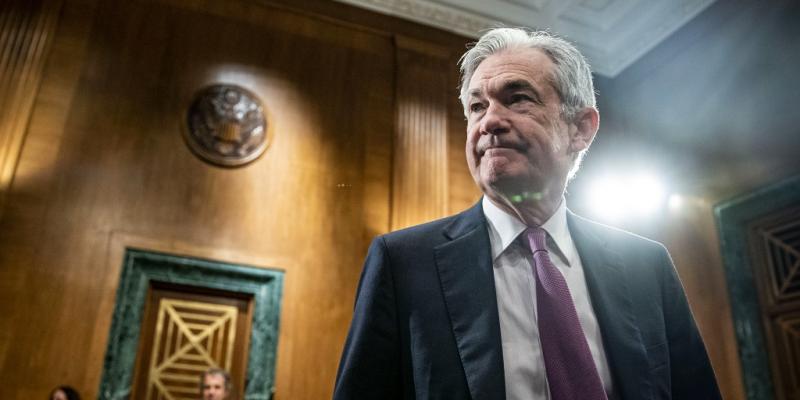Fed holds rates steady, says sectors most affected by pandemic are showing improvement



Federal Reserve officials voted Wednesday to keep interest rates at their current levels, extending the central bank's support for the economy as Covid infection rates surge and vaccination rates stall out.
Members of the Federal Open Market Committee, the Fed's policymaking arm, opted to maintain the bank's benchmark interest rates at between zero and 0.25 percent, at the conclusion of its two-day monetary policy meeting.
When the pandemic hit in March 2020, the Fed enacted a series of extraordinary measures to support the economy, buying up billions of dollars in monthly assets — $80 billion in Treasury securities and $40 billion in mortgage securities — to prop up the economy and slashing interest rates to stave off a financial crisis.
Federal Reserve Chairman Jerome Powell has said he does not intend to alter that policy until data reflects specific progress in the nation's unemployment levels and inflation settles at or around the Fed's target of 2 percent.
"We have not reached substantial further progress yet. We see ourselves having some ground to cover to get there," Powell said in a press conference following Wednesday's rate announcement.
Around 9.5 million people are still out of work after the coronavirus strangled the economy, shutting down businesses and keeping schoolchildren and workers at home.
The overheated housing market and rising prices for consumer goods and commodities have some economists and lawmakers pushing for the Fed to bump up the interest rate and to start tapering its asset purchases in order to prevent the economy from overheating.
For his part, Powell has pushed back on any notion that mortgage purchases are affecting the housing market.
While economists and cabinet officials have been quick to point out that one piece of data does not make a trend, a series of discouraging economic metrics has cast a shadow over the nation's economic recovery.
The April jobs report disappointed, showing just 269,000 jobs added vs. expectations that had topped 1 million new positions. Weekly initial jobless claims have also failed to gain traction, rising to 419,000 applications last week after falling to pandemic lows in previous weeks. Consumer prices rose for a third straight month in June, jumping by 5.4 percent year over year, as soaring consumer demand continues to outstrip supply.
The recent surge in Covid-19 caseloads among the unvaccinated population and the highly contagious delta variant have also thrown a wrench in the economic engine.
"What we've seen is with successive waves of Covid over the past year and some months now, there has tended to be less in the way of economic implications from each wave," Powell said. "We will see if that is the case from the delta variety."
While the Fed is likely to start its tapering later this year at the earliest, Chair Powell is widely expected to address the issue more deliberately when the central bank has its annual symposium in Jackson Hole, Wyoming, which will be held in person on August 26-28.
While the Covid-induced recession was one of the deepest on record — with a staggering 31.4 percent plunge in gross domestic product in the second quarter of 2020 — it was also the shortest, lasting just two months, according to the National Bureau of Economic Research, the official documenter of economic cycles. A recession is typically defined as two consecutive quarters of negative GDP growth.








Yesterday, 84,000 plus new covid case and close to 500 deaths. We are heading right back to the height of the pandemic with a much more viral variant.
The feds are going to need to keep the interest rates low for the economy to stay afloat.
The economy around the world is full of bottlenecks that should retighten with Covid-D manifesting a new squeeze and governments too squeamish to mandate vaccinations.
Probably wise, inflation is going to stay high until the Fed stops printing money. It's more than tripled in the last six months and it has increased steadily every month of that six months. It's been three decades since we've seen inflation rates like this. That said, the quarter point they have left isn't going to help much if things get as bad as they are heading right now.
Protect your investments people ..... another big hit is coming.
That was my thought. They have no wiggle room.
Their quiver is low on arrows.